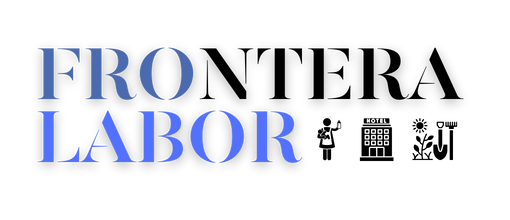
If we think we are losing, innovation can’t be a hoped-for outcome. Rather, a full strategic remaking must become our innovation.
Duck Duck Goose: A Signal for Strategic Re-Examination
There was a gathering of collaborative immigration defense practitioners in Houston sometime ago, and I was lucky enough to listen in as the best and most experienced practitioners in the field convened to discuss what was working and what was not. I hope that some of those who attended are reading this now.
It was a valuable gathering in that it shed light on a lot of strategic issues that were common to projects across the spectrum of massive collaborative representation, from detention projects and large-scale clinics for the non-detained to MPP border projects in the Southwest.
It was also valuable for another reason: despite the overwhelming number and breadth of heroism that could be attributed to all of the people in the room, there was a palpable sense that the vanguard of the advocacy movement was losing, with growing realization as the convening went on that the losses on the border with MPP were reverberating and bringing further hardships to practitioners everywhere.
The macabre gist is that the onslaught of remain in mexico policies (we need a better name, I swear) was grinding down advocacy projects and putting strain on advocates. The losses, which always outpaced the wins over the past six years, were now mounting at an accelerated pace, pushed forward by a combination of political power, illegal administrative maneuvers, and a bundle of dilatory tactics that have come to be known by the advocates as “Duck Duck Goose”.
Duck Duck Goose is a term, ironically playful, that refers to the randomness with which laws are applied to individuals seeking asylum at the Southwest border. With no explanation, an individual could be put in expedited 235 proceedings, taken into detention to receive a CFI and be placed in 240, or be told to wait for a chance at a 240 hearing on the Mexican side of the border. Which outcome awaits which person was a matter of a DHS employee’s random pick, much like Duck Duck Goose. When Duck Duck Goose is played often enough, randomly enough, the advocates, much like the refugee seekers, were left chasing shadows and their own backsides.
Houston felt, in short, that despite this being a gathering to figure out new ways to innovate collaborative innovation defense, it was also a gathering to lament that despite everyone’s best efforts to push the field forward, efforts at the moment are not enough.
The effect of the losses are hard to quantify, as they are impacting organizations differently depending on the region. But this idea, that we are losing, is being felt across the country. In my neck of the woods, in North Carolina, our detention center slated for CFI inteviews has seen no CFI interviews since November 2019. In Tallahatchie, where the MIA project was active, January brought news that CFI interviews would no longer be carried out there. CFI’s are not only scarcer, but in Duck Duck Goose fashion, DHS is refashioning its detention system to concentrate the majority of its holding cells in the Deep South, from Texas to Louisiana, with Louisiana alone getting 10 detention facility contracts.
If MCR is losing – what do we do?
The fact that collaborative representation is straining under the weight of a government frontal assault on the ability of advocates to do their job and on the ability of refugees to find a sane path to a sane court is not a condemnation of massive collaborative principles. I’ve summarized what we have done well in collaborative defense since the first full manifestation of collaborative defense in Artesia.
To me it is a signal that we have to carefully, deliberately, and collaboratively examine how we need to shift and alter our efforts if we want to see different results. I assume that anyone who is a defeatist is not reading this (note: that’s always my assumption, because, as I laid out in the introductory piece to this blog, I am writing for people who already give a damn), so I’ll skip over any premature laments about how it’s all for naught.
We need to shift how we think of innovation as not just something to be outsourced to a third-party, or even to be brought in-house via a miracle hire. Innovation is not even something that an organization solely devoted to its creation can magically seed among the community of organizations and badass advocates that participate in collaborative defense work. This is because innovation is an end product of a process, and not a thing that can be purchased online or be brought into being by gumption and well meaning work.
In isolation, a process that builds towards innovation is fraught with failure, and false starts, and delays, and abandoment, and redeployment. So in isolation, a process geared to produce innovation has a low chance at success.
In the aggregate, when innovation is defined as a common goal of many, processes still fail at the individual level, and there are still delays, but resilience is built into the system and it is much more likely that the goal of innovation, that end product of a process, can be reached.
What we should have done differently in Houston
So if innovation is the end product of a goal, and if the chances of reaching that goal – that point when we look around and say, “ooh, that’s real innovation going on there, folks” – it makes sense that what we need to define and come to share is a blueprint of what we are working towards.
A blueprint is more specific than just abolition or gradual disarmament of xenophobic discourse. Those belong to “Vision”, which all orgs and people do not have to share.
A blueprint is a little more technical. Where a vision may say – “We imagine a future where we have abolished ICE” – a blueprint may instead say, “We are going to build out a raid tracking, reporting, and accountability network that is going to aggregate data on all arrests across the U.S. and feed all of that data into a central repository/clearinghouse that will be accessible to vetted impact litigators, who’s task it will be to challenge ICE authority to conduct various forms of illegal search and arrest. And to do that we need to prioritize the funding and deployment of smart hotlines across key U.S. regions, and to further recruit, develop, and fund grassroot organizations and nonprofits to staff and maintain those hotlines over time.”
The last thing I want to do is appear flippant about our motivations and guiding stars. Having a Vision is critical, and I enjoy and value the work of creating missions and visions for my own work. But without better blueprints, that we are all in some level of agreement that we are working towards – “all” here referring to advocates, funders, and technical assistance organizations, among others I’m sure I haven’t created a suitable category for – much of the efforts we are currently devoting to innovation in spurts is going to go to waste.
We can see the signs. We use Law Lab databases, but we all have different intakes and internal rules that make it hard to transfer and share cases, even though Law Lab has that capability; we save data for some hypothetical far off litigation, even though we could use it for many different uses now, including operation model validation, funder recruitment, volunteer encouragement, and storytelling; funders know we need to collaborate but few are willing to change funding models to address the fact that funding should be more open and should reward cooperation.
My challenge to everyone in the collaborative defense field is to spend time with allies and colleagues to have a conversation about what the blueprint is for the strategic capabilities we need to have to realize the ambitious and heroic goals we hold in our hearts.





We had a similar concept to “duck, duck, goose” at several of the various legal services projects I’ve worked with over the years, though we used much coarser language to describe it. We called it “f**ked, f**ked, lawyer” to reflect how often it was by pure happenstance that some folks get “f**ked” and left without representation while others get a lawyer. Knowing how much of a difference it makes to have representation or not, it’s often difficult for those in positions of deciding which cases to accept and which to decline to avoid feeling like we’re engaged in the same banal evil that marked the last humanitarian crises of this magnitude, sending some people to work camps and some people to death camps with a wave of the hand or a flick of the pen…